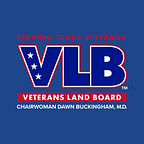Your First Year as a Veteran: Doug Gault USA (RET.)
In December 1985, I took the oath to defend the Constitution of the United States at the Oakland, California Military Entrance Processing Station (MEPS), not knowing that I would end up standing on a parade field 30 years later for my retirement ceremony at Fort Hood, Texas. During that 30 year span, my focus was on taking care of soldiers and their families. Now that I have been retired for two years, I’ve had time to reflect on what I would have done differently to prepare myself and my family for retirement.
I would like to give everyone some food for thought from an old Command Sergeant Major’s perspective. I hope you take these words into consideration and store them away in your toolbox as you prepare for your transition from military service and during your first year as a Veteran.
1. What I found critical in my transition to civilian life was this: You must keep your family informed and involved in every decision. You must remember, it’s not all about you during your transition. Your family will also be giving up a lot, especially if the plan is to leave your current duty station. Your children may be in their last year of high school, your spouse may have a good job, and of course they’ll be leaving friends that they’ve had for years. This transition can become a very challenging set of events if your family is not involved. I have an old saying: “If you all go in together and it doesn’t go as planned, at least everyone was involved in the decision, and you can tackle this obstacle together again.”
2. Civilian life and many workplaces tend to lack the camaraderie that we are accustomed to in the military and can be like night and day. Therefore, I highly recommend that Veterans seek help or advice from the various Veteran Organizations in their location. Talking to the Veterans that have already lived this transition is important. I also found connecting with other Veterans in my area to be very helpful during my search for employment. In 2011, a study was conducted by Syracuse University that revealed the following information: 80% of all transitioning Veterans quit their first job in less than two years. A lot of Veterans are not adequately prepared for this culture change. As soldiers we are accustomed to teamwork, service, and sacrifice and I am here to tell you, be prepared for change too. So, again, reach out for help from the various Veterans Organizations in your area.
3. Pride is another struggle that may have to be overcome with the understanding that “you’re not the top dog anymore.” After being the Garrison Command Sergeant Major for two and a half years, I was somewhat spoiled. You too may find yourself taking a job where you might not be in charge anymore. In talking to Veterans during my travels, this seems to be a big issue. It is imperative that you get in the mindset that even though you no longer serve, it’s okay. If not, you may find yourself being one of the 80% I spoke of earlier. Within the civilian job market, it’s best to keep putting your best foot forward and work your way up to a leadership position. When you decide you are ready to make the leap, your good work ethic and management skills will be noticed by civilian leaders.
4. Don’t limit yourself to Military Occupational Specialty (MOS) specific skills. When writing your resume, or putting together a packet for employment, ensure you take full advantage of any and all skills the military provided to you over the years, including college courses and degrees. If you haven’t taken any college courses, I recommend using your education benefits to the maximum extent possible. Civilian employers look upon Veterans favorably and even more so when they have an education in addition to their successful career in the military. This will give you an edge over others competing for the same position, or it may even open up other opportunities. All in all, take advantage of the benefits that are afforded to you while serving your country, and reap the rewards when you decide to depart or retire. The key is to have a solid, well thought out plan (which should be assembled a minimum one to two years prior to your transition). Time will pass much faster than you think!
In closing, I would like to leave you with one more thought: Stay in contact with your battle buddies even if they are still serving and find a Veteran you can talk to. I found it helpful to speak to someone that speaks my language and understands what I may be going through in this transition, as many of them have already lived it.
~CSM(R) Doug Gault
U.S. Army Veteran
Doug Gault served in the U.S. Army for 30 years as a Combat Engineer and retired on February 29, 2015. Doug’s career culminated with him serving as the Garrison Command Sergeant Major for the largest military installation in the Army at Fort Hood, Texas.
He served three combat tours: Desert Storm/Desert Shield in 1990, Operation Iraqi Freedom (OIF) from November 2005 to November 2006, and Operation Enduring Freedom (OEF) from January 2010 to January 2011. Some of his awards and decorations include the Legion of Merit, Bronze Star Medal with two Oak Leaf Clusters, Meritorious Service Medal with two Oak Leaf Clusters, Navy and Marines Corps Commendation Medal, Ranger and Sapper tab, Airborne Badge, Air Assault Badge, Pathfinder Badge and Drill Sergeant Badge.
In April of 2016 Doug joined the Texas Veterans Land Board (VLB) as a the Chief On-Site Representative for the VLB Texas State Veterans Cemeteries program.
